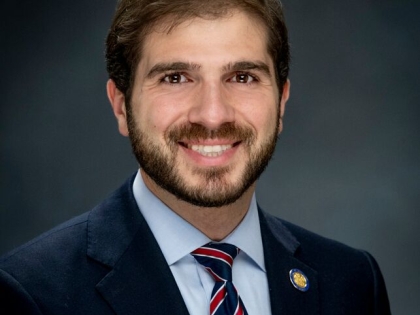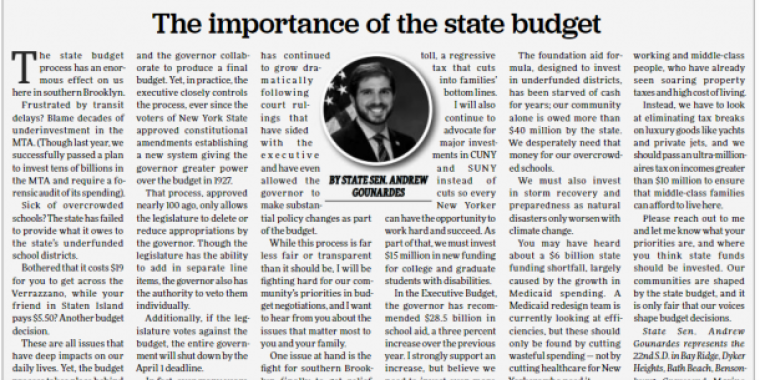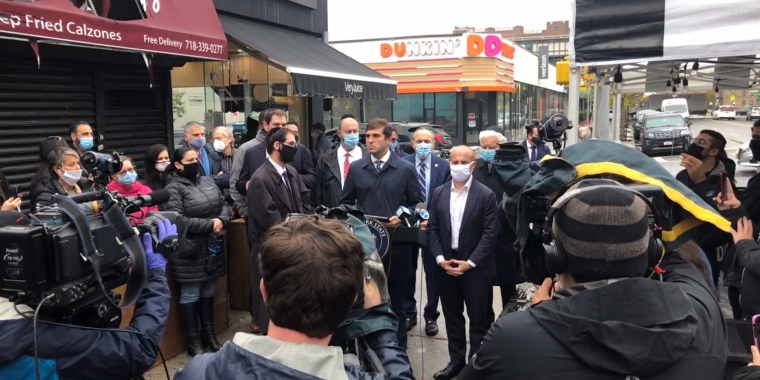
The Importance of the State Budget
Senator Andrew Gounardes
March 4, 2020

The State budget process has an enormous effect on us here in southern Brooklyn.
Frustrated by transit delays? Blame decades of underinvestment in the MTA. (Though last year, we successfully passed a plan to invest tens of billions in the MTA and require a forensic audit of its spending). Sick of overcrowded schools? The State has failed to provide what it owes to the states’ underfunded school districts. Bothered that it costs $19 for you to get across the Verrazzano, while your friend in Staten Island pays $5.50? Another budget decision.
These are all issues that have deep impacts on our daily lives. Yet the budget process takes place behind closed doors.
In theory, the Legislature and the Governor collaborate to produce a final budget. Yet in practice, the Executive closely controls the process, ever since the voters of New York State approved constitutional amendments establishing a new system giving the Governor greater power over the budget in 1927.
That process, approved nearly one hundred years ago, only allows the legislature to delete or reduce appropriations by the Governor. Though the legislature has the ability to add in separate line items, the Governor also has the authority to veto them individually. Additionally, if the legislature votes against the budget, the entire government will shut down by the April 1 deadline.
And, over many years, the Governor’s influence over the budget process has continued to grow dramatically following court rulings that have sided with the Executive and have even allowed the Governor to make substantial policy changes as part of the budget.
While this process is far less fair or transparent than it should be, I will be fighting hard for our community’s priorities in budget negotiations, and I want to hear from you about the issues that matter most to you and your family.
One issue at hand is hand the fight for southern Brooklyn to finally get relief from the outrageous Verrazzano-Narrows Bridge Toll, a regressive tax that cuts into families’ bottom lines.
I will also continue to advocate for major investments in CUNY and SUNY instead of cuts they year after year so every New Yorker can have the opportunity to work hard and succeed. As part of that, we must invest $15 million in new funding for college and graduate students with disabilities.
In the Executive Budget, the Governor has recommended $28.5 billion in school aid, a 3% increase over the previous year. I strongly support an increase, but believe we need to invest even more in our underfunded school system. The Foundation Aid formula, designed to invest in underfunded districts, has been starved of cash for years; our community alone is owed more than $40 million by the state. We desperately need that money for our overcrowded schools.
We must also invest in storm recovery and preparedness as natural disasters only worsen with climate change.
You may have heard about a $6 billion state funding shortfall, largely caused by the growth in Medicaid spending. A Medicaid Redesign Team is currently looking at efficiencies, but these should only be found by cutting wasteful spending - not by cutting healthcare for New Yorkers who need it.
The budget cannot be balanced on the backs of working and middle-class people, who have already seen soaring property taxes and high cost of living. Instead, we have to look at eliminating tax breaks on luxury goods like yachts and private jets; and we should pass an ultra-millionaires tax on incomes greater than $10 million to ensure that middle-class families can afford to live here.
Please reach out to me and let me know what your priorities are, and where you think State funds should be invested. Our communities are shaped by the state budget, and it is only fair that our voices shape budget decisions.
Share this Article or Press Release
Newsroom
Go to NewsroomJohn Cortese
November 11, 2020

Statement on Continued Public School Closures
November 5, 2020
